I’m NOT sorry BBC: I WILL pirate!
Aractus
Around this time last year the BBC was trying to influence Australian policy (see the TorrentFreak article, the BBC website article, and the submission itself). They claimed that Australians were pirating Doctor Who (OF COURSE THEY ARE!), despite the show being simulcast, despite the iView service, and despite being broadcast in a prime-time timeslot on ABC as well. The BBC also said VPNs are “Pirate tools” allowing people to circumvent geo-blocking “technology” and ISPs should monitor their usage and assume that people are using them for illegally obtaining BBC material. They also want ISPs to slow bandwidth and even disconnect their customer’s accounts for “the most serious” cases. I shall quote from their submission so you can see for yourself:
It is reasonable for ISPs to be placed under an obligation to identify user behaviour that is ‘suspicious’ and indicative of a user engaging in conduct that infringes copyright. Such behaviour may include the illegitimate use by internet users of IP obfuscation tools in combination with high download volumes. …
ISPs need a policy to deal with repeat offenders. The exact parameters of what would be the agreed measures or procedures should be the subject of an ongoing dialogue between the industry and ISPs. Possible sanctions could include subjecting repeat offenders to a slowing down of their bandwith but stopping short of cutting off the internet service, save except in the most serious and egregious circumstances, as is the case in the United States.
Well. As you can imagine, I have a number of things to say. Before I do please note – and really this should go without saying – I’m not advocating piracy. And I’m certainly not suggesting there’s justification for pirating other things like games, books, music, applications, etc. I’m all about supporting authors… not so much publishers, but I’m not advocating in this post not to support content creators and copyright holders. So without further ado, here’s my first thought:
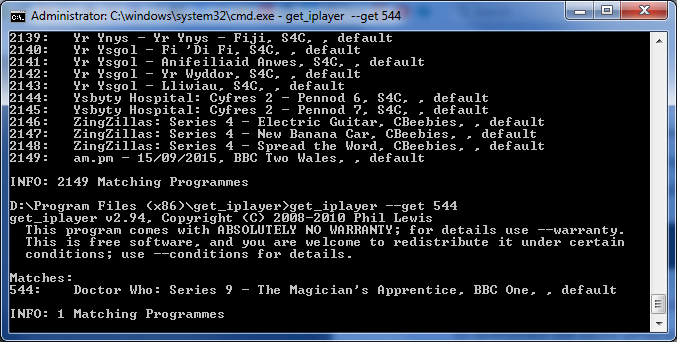
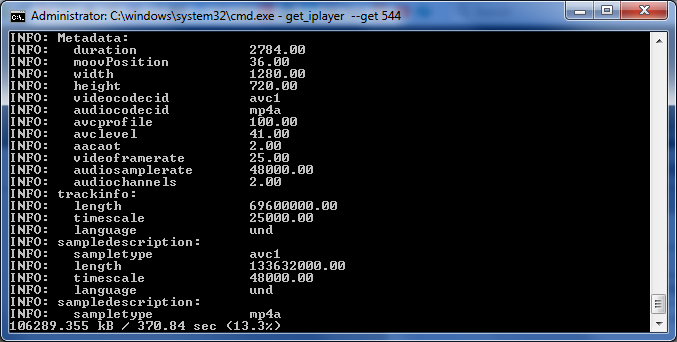
Here’s the second:

Okay, there are four versions of the episode in that folder. Two that I acquired perfectly legally, and two that might have some questionable legitimacy. The top file is downloaded from The Pirate Bay (ARR), it is a BBC broadcast recording. The second file along with the subtitle is downloaded from ABC iView using iViewRipper. The third file is a digital recording of the ABC broadcast still in its original broadcast format. And the bottom one is from the BBC website ripped using get_iplayer as you see above.
Peer-to-peer sharing has been around a long time. In 2002 I missed an episode of The Mole, one of my favourite shows. Luckily I had a friend in WA and I had him record it (onto VHS) and mail it to me. I believe it was either Episode 2 or 3 that I missed (although I don’t think I have the VHS anymore). Torrents however allow anyone, not just your close personal friends, to receive a copy you made for them. So it’s not all about the “what”. I have mentioned numerous times about what copyright publishers have tried to do in the past – they tried to ban the photocopier, they tried to ban the VCR by boycotting releasing commercial movies on the format (that didn’t last very long because pornographers were more than happy to release their films on VHS), they tried to print “this disc is not for rental” and lost (although apparently in the UK they won that somehow), and yes they also oppose public libraries where people can view copyrighted works without paying any contribution to the original authors.
This battle has gone on so long now that they began tiring the commercial releases of their releases as well. “Rental” DVDs (with a much higher wholesale cost to retailers) were released 3 months prior to “Retail” DVDs, and now Digital releases get released prior to DVD because – you guessed it the copyright publisher gets the lion’s-share of the purchase price. What does that remind you of? Cinema! Cinematic films also have the publishers receiving the lion’s-share (with cinemas making most of their profits from the sale of food and drinks). So you have: Cinemas, Digital, Library/Rental, Home Video, and Peer-to-Peer; all with varying degrees to which the publisher receives royalties. In the Library or Rental outlet they receive no royalties other than the original purchase of the work. Same with Peer-to-Peer. Retail releases they have to share the profits with retailers. Digital and Cinema, they get the lion’s-share of sales and only have to share a small amount with vendors. We won’t discuss broadcasting licensing right now, because that goes beyond the scope of this blog entry. Right, so now we know what publishers want: they want to always receive as much of the profit from works as possible, and to find ways to get them more profit and vendor’s less.
They also want to be able to sell things forever and have copyright never expire – this frightened actors in the 1960’s when video tape was invented. So the Screen Actor’s Guild had a contract stipulating that episodes must be destroyed after their original broadcast, and any sales to foreign broadcasters. So, the BBC should not be making any profit from any TV shows made under those terms – and that includes much of Classic Doctor Who – which actually they do still sell and profit from. Interesting isn’t it? The contracts clearly stated they could not keep broadcasting or selling these shows – it was done in order to protect actors so that they had to continue producing more new shows and could never just run re-runs.
Now I know this is going to be really really boring, but here’s the screenshots we’ll be looking at (BBC on top, ABC on bottom) and you can click either one to view in the original size (for BBC that’s 1280×720, for ABC it’s 720×576):
At this size you probably can’t tell the difference too easily. It is exactly the same frame from each source, and it’s about 40mins into the episode. One thing I noticed is that the ABC version (both the broadcast above and the iView version you’ll see below) are missing the dalek’s glowing-eye effect. But the difference in quality is all too clear. The ABC broadcast is standard definition – 576i. It has interlacing artefacts from the interlaced MPEG2 encoding. The BBC broadcast and iPlayer versions are both 720p (BBC iPlayer has other qualities too but that’s the “best” quality version). The ABC iView version is 1/4 the resolution at 640×360. So I will show you how they look when resized to 720p (again you can click the images to view the original size for each version). This time the order is ABC iView on top, then BBC iPlayer, then ABC broadcast, and finally the BBC broadcast (from The Pirate Bay).
ABC iView:
BBC iPlayer:
ABC Broadcast:
BBC Broadcast (from The Pirate Bay):
The clear winner in terms of video quality is the BBC iPlayer version. The torrent on The Pirate Bay’s of a digital recording of the BBC broadcast is almost exactly the same file-size, and there’s no channel logo, the video quality very close to the iPlayer version, but I’d say the iPlayer has a slight edge. But it is nicer because there’s no god-damned channel logo!! The ABC broadcast has interlacing artifacts and is lower quality because it’s standard definition, the file-size is huge because it’s MPEG2, and the ABC iView is terrible quality because it’s only 1/4 the resolution of HD (640×360). By the way audio is another matter – the peer-to-peer version is the ONLY one of the four to have 5.1 audio. But out of the other three the ABC broadcast has the highest bitrate audio.
I transcoded the ABC broadcast using avisynth, QTGMC on its default settings to remove the interlacing artefacts, and x264 to encode. It took about 2 hours. So even getting it to decent watchable quality to put in your media file folder takes some time. By contrast it took just 2 minutes to download the 720p file from the BBC servers.
So let’s look at the BBC’s arguments again. Yes the show was being simucast last year – but this year it isn’t. We don’t get to see it broadcast at 4:30 AM, we get it at 7:30 PM (15 hours after the UK) and as far as I know the iView version doesn’t become available until AFTER it airs in the UK. Yes the iView service is timely enough – but the quality is horrendous. And the effects are INCOMPLETE! Why do we have an incomplete version of the show??? What possible justification does the BBC have for that? What kind of a Doctor Who Enthusiast is going to watch the show in 360p? The customers that might use the iView service to view the show before it airs are the enthusiasts – yes – so it needs to be in comparable quality. I’m old enough to remember when anti-piracy campaigns used to tell consumers that illegitimate versions are inferior quality to the genuine products: now the exact opposite is true. The best quality versions are the so-called illegitimate pirated versions, and the worst quality are the so-called genuine ones.
At this point I have just about lost all respect for the BBC. Their arguments are no different to the people complaining about adblock and calling all of us blockers “thieves”. You know in June last year OpenDNS removed all ads from their site saying that advertisements represent a security threat, and are an invasion of privacy. I’m not some newly converted blocker – I’ve used the MVPS HOSTS file for over a decade!
I won’t discuss the politics in detail this post, I’ve already done that multiple times in the past, so I leave you with this thought. The only way to enjoy the show as it was originally intended (in HD with 5.1 audio) in Australia is to download a digital BBC recording through peer-to-peer networks. Until that is addressed, until the BBC and the ABC respect their customers, their customers aren’t going to respect them.
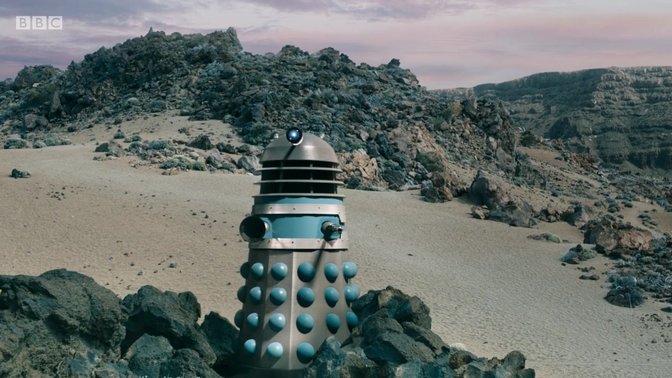
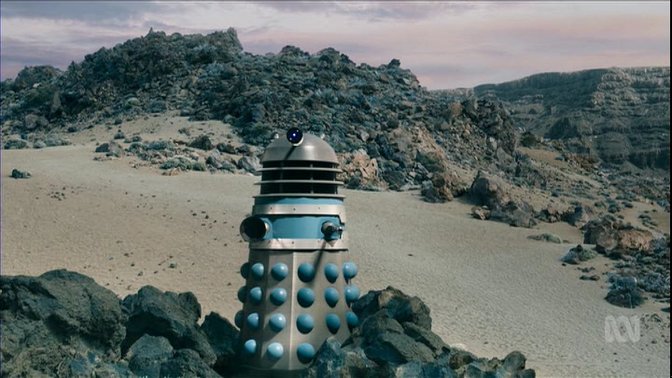
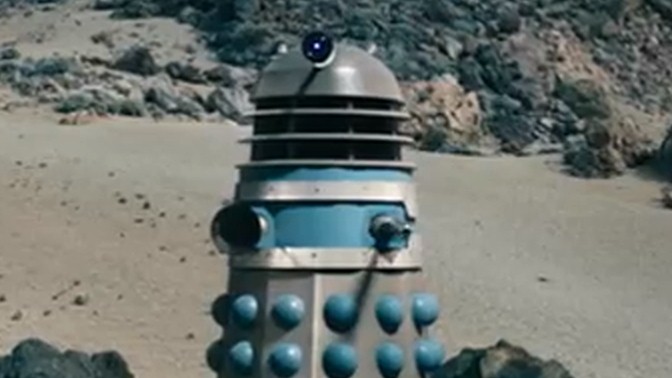
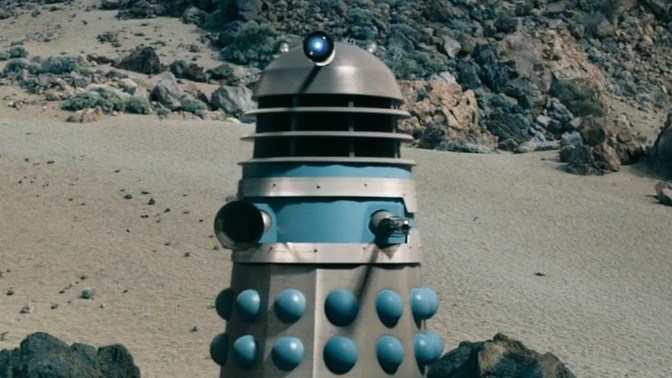
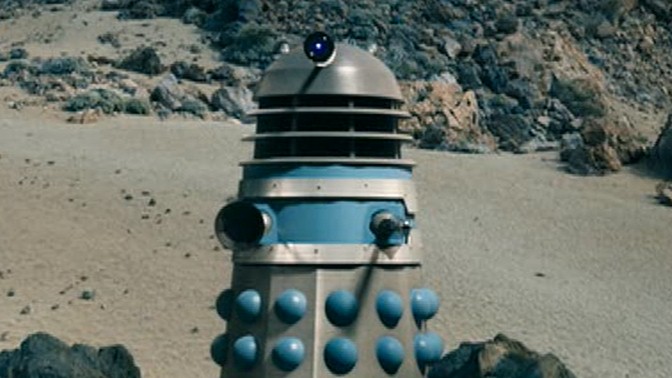
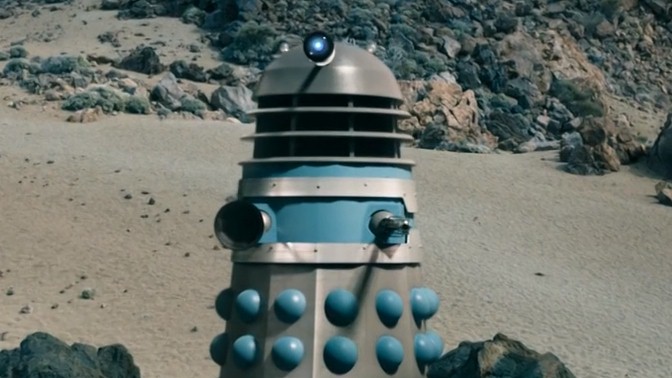
The pseudo follow-up post to this can be found here.
[…] It’s been exactly one year since my last deliberately provocative post on copyright. Then I was talking about Doctor Who and our inferior […]